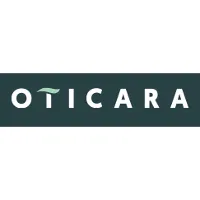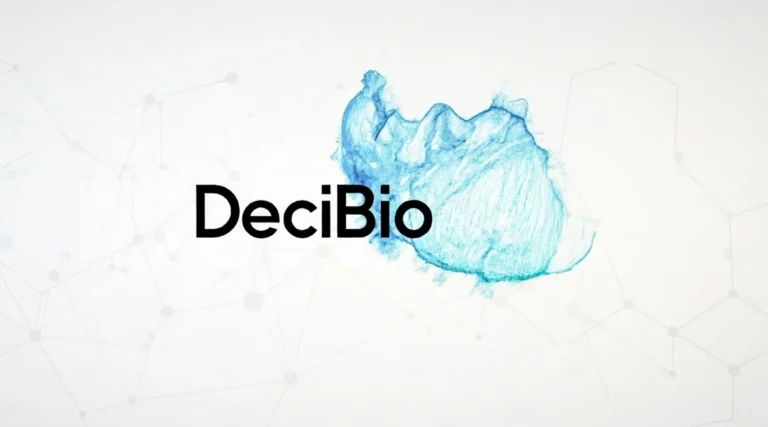
Oticara Reports Positive Phase 2 Results for Novel Nasal-Mucosa-Optimized Steroid Cream in Hard-to-Treat Post-Surgical Chronic Rhinosinusitis
Oticara, a clinical-stage biopharmaceutical company focused on developing innovative therapies for chronic rhinosinusitis (CRS), has announced encouraging outcomes from its Phase 2 OT-007B clinical trial evaluating its proprietary nasal-mucosa-optimized steroid cream in patients who continue to experience CRS symptoms following endoscopic sinus surgery (ESS). The trial findings were unveiled during a late-breaking oral podium presentation at the American Academy of Otolaryngology – Head and Neck Surgery Foundation (AAO-HNSF) 2025 Annual Meeting & OTO EXPO℠ in Indianapolis, Indiana.
The OT-007B trial evaluated a patient population that represents a significant unmet medical need. Chronic rhinosinusitis, a condition characterized by persistent inflammation of the nasal and sinus mucosa, affects millions worldwide and can significantly impair quality of life. While ESS is a standard surgical intervention aimed at relieving obstruction and restoring sinus function, a substantial subset of patients continues to experience persistent symptoms despite surgery. For these post-surgical patients, effective treatment options remain limited, often leaving physicians and patients with few therapeutic alternatives.
“For ENT specialists, it is uncommon to see a therapy that can be delivered in-office in just a few minutes and still achieve such meaningful clinical outcomes,” said Anders Cervin, MD, PhD, FRACS, senior author of the study and presenter at the AAO-HNSF meeting. “In this Phase 2 trial, Oticara’s nasal-mucosa-optimized steroid cream demonstrated durable and clinically significant symptom relief for patients who remained symptomatic after surgery. These results suggest that this treatment could be seamlessly incorporated into routine ENT practice while providing meaningful relief for a population that has historically had few options.”
Study Design and Methodology
The Phase 2 OT-007B study was a multicenter, open-label trial involving 24 adult patients with persistent CRS symptoms post-ESS. Patients received a single, in-office application of Oticara’s intranasal cream, which is delivered via pre-filled syringes designed for precise, targeted application under endoscopic guidance by an ENT physician. The approach ensures that the steroid cream is applied directly to affected regions of the nasal mucosa, maximizing local therapeutic exposure while minimizing systemic steroid absorption.
The trial was structured to evaluate both co-primary and secondary endpoints, focusing on symptom improvement, patient-reported outcomes, and physician-assessed measures of nasal health. Specifically, co-primary endpoints included the 4 Cardinal Symptom Score (4CSS), which assesses nasal obstruction, facial pain/pressure, nasal discharge, and loss of smell, and the Sino-Nasal Outcome Test (SNOT-22), a widely validated tool for evaluating quality of life in patients with CRS.
Secondary endpoints included subdomain analysis of SNOT-22 scores, patient global assessments of severity, improvements in sense of smell, and physician-assessed measures, including the Modified Lund-Kennedy Score (MLKS) and nasal polyp burden. Safety and tolerability were also evaluated, with a focus on systemic steroid exposure and potential effects on intraocular pressure (IOP) and serum cortisol levels.
Key Efficacy Outcomes
The Phase 2 results demonstrated robust efficacy across multiple endpoints, with significant improvements noted as early as week 3 following a single in-office treatment.
- 4 Cardinal Symptom Score (4CSS): Patients experienced a mean reduction of -3.82 points at week 3, representing a 32.6% improvement from baseline (p<0.0001). Notably, 58.3% of patients met responder criteria, underscoring the clinical relevance of these findings.
- Sino-Nasal Outcome Test (SNOT-22): The treatment exceeded the minimum clinically important difference (MCID) at all time points assessed. SNOT-22 scores were reduced by -17.15 (p<0.0001) at week 3, -10.70 (p=0.0019) at week 6, and -10.49 (p=0.0025) at week 9, indicating sustained symptom relief throughout the study period.
- SNOT-22 Subdomains: Analysis of individual subdomains, including nasal, ear/facial, sleep, and psychological domains, revealed significant improvements across all areas at week 3 (p≤0.001), with each subdomain meeting its respective MCID. These results suggest a comprehensive impact of the treatment on patients’ overall quality of life.
- Patient-Reported Outcomes: On the Patient Global Impression of Severity (PGIS) scale, 91.7% of participants reported meaningful improvement in their symptoms, including clinically relevant gains in sense of smell, an endpoint often challenging to address in post-surgical CRS.
- Physician-Assessed Measures: Clinician evaluations also reflected meaningful improvements. MLKS scores and nasal polyp burden assessments indicated measurable reductions in objective markers of inflammation and disease severity.
- Durability of Effect: The trial demonstrated sustained symptom relief through week 9, the full duration of the study, highlighting the long-lasting impact of a single application of Oticara’s targeted nasal cream.
Safety and Tolerability
Safety analysis confirmed that Oticara’s nasal-mucosa-optimized steroid cream was well tolerated, with no severe, serious, or fatal adverse events reported. Importantly, systemic steroid exposure following the intra-sinus application was minimal. Pharmacokinetic assessments revealed that the systemic steroid levels were roughly equivalent to a single 10 mg oral prednisone dose—more than 90% lower than a typical five-day oral corticosteroid course—while still achieving robust local therapeutic effects. Additionally, there were no clinically significant changes in IOP or serum cortisol levels, supporting the favorable safety profile of the therapy.

Chris Marich, MBA, Chief Executive Officer of Oticara, emphasized the significance of these results: “Patients who continue to experience CRS symptoms after surgery represent one of the most challenging populations for ENT physicians to treat effectively. The Phase 2 data clearly demonstrate that a single, in-office application of our nasal-mucosa-optimized steroid cream can provide rapid, durable symptom relief with a highly attractive safety profile. We believe this therapy has the potential to transform post-surgical care for CRS and address a significant unmet medical need.”
Mechanism of Action and Clinical Advantages
Oticara’s approach leverages a nasal-mucosa-optimized formulation that allows the steroid cream to adhere to the sinus tissue and remain in place for several days, maximizing local anti-inflammatory effects. Unlike conventional nasal sprays or oral corticosteroids, which often have limited mucosal contact or substantial systemic absorption, Oticara’s intranasal cream delivers high local concentrations of active steroid directly to the affected areas.
The targeted delivery method, guided by endoscopic visualization, ensures that the cream is accurately applied to inflamed regions of the sinus cavities, reducing variability in dosing and improving overall efficacy. The rapid, in-office administration also provides convenience for both physicians and patients, allowing treatment to be performed during a single clinic visit without the need for extended at-home regimens.
Pharmacokinetic analysis supports the advantage of this localized approach. By confining steroid exposure to the sinus mucosa, systemic absorption is significantly reduced, minimizing risks associated with oral or high-dose systemic corticosteroids. This localized pharmacology allows patients to experience strong therapeutic benefit while limiting potential systemic side effects, a critical consideration for individuals requiring repeated interventions or long-term management.
Future Development and Regulatory Pathway
Building on these positive Phase 2 findings, Oticara is advancing preparations for additional clinical trials aimed at confirming efficacy and safety in larger patient populations, including randomized, placebo-controlled studies. These upcoming trials will further evaluate optimal dosing strategies, long-term durability, and potential applications in broader CRS populations, including those with recurrent nasal polyps or other refractory forms of the disease.
Data from the OT-007B study has also been submitted for publication in a forthcoming summary issue of late-breaking presentations in the American Academy of Otolaryngology – Head and Neck Surgery Foundation’s peer-reviewed journal. Peer-reviewed publication will provide additional validation of the study results and facilitate broader dissemination of findings within the ENT community.
The Phase 2 OT-007B trial highlights Oticara’s potential to address a critical unmet need in the treatment of post-surgical CRS. By providing a single, in-office application that delivers targeted, durable, and well-tolerated symptom relief, Oticara’s nasal-mucosa-optimized steroid cream represents a promising advancement for both patients and ENT specialists. The combination of rapid onset, long-lasting effect, minimal systemic exposure, and strong patient-reported and physician-assessed outcomes positions this therapy as a potential new standard of care for individuals who remain symptomatic after ESS.
As Oticara moves forward with additional clinical studies, the company aims to expand access to this innovative therapy, ultimately improving quality of life for a population of CRS patients who have historically had limited treatment options. With its Phase 2 success, Oticara reinforces its commitment to advancing novel, physician-friendly treatments that can meaningfully transform outcomes for patients living with chronic sinus disease.





